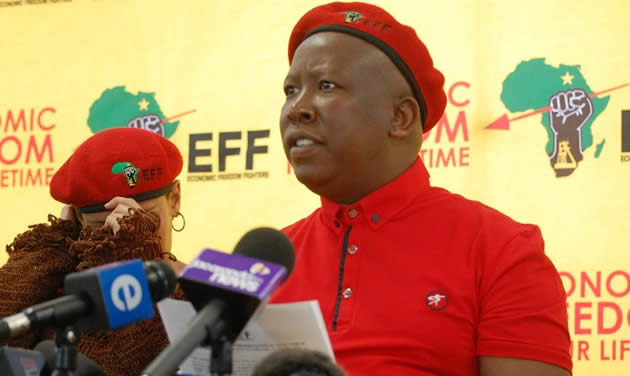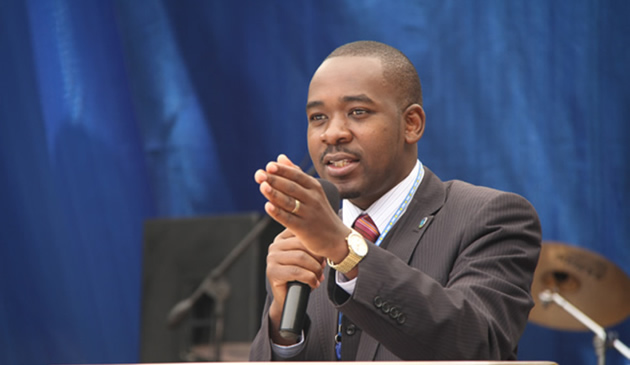South Africa’s May 7 poll and Africa’s folly

THERE is something about an election season that brings the best and worst in people. Some cross floors while others act like spoilt brats in order to attract attention, with ordinary people wondering whether it is an election about personalities and/or issues. Pathetic though it might be, it’s a truism of elections the world over.
With South Africa’s May 7 elections only days away, we again see the best and worst that people are capable of doing in displaying what can be described as an attention-seeking deficit disorder.
It took South Africans hundreds of years and suffering to achieve universal suffrage, but a mere two decades since that was achieved on April 27, 1994 some people are looking at that freedom with tinted lenses and claiming that it is after all not that rosy.
Bantustans, pass laws, the Sharpeville massacre, incarcerations at Robben Island and more apartheid evils are now historical by-lines impeding progress.
The argument is that the ruling African National Congress is taking forever to bring true freedom – economic independence. President Jacob Zuma is in the line of fire as some within the ANC ranks and outside argue that not much has been done since Nelson Mandela took over the reins of power in 1994.
The South African scenario is pathetic because you get individuals who have been part of the struggle, part of the ANC and in some cases part of government, waking up a few days before election day to vociferously decampaign something they were part and parcel of. Why were they not part of the solution instead of being spoilers?
Although it is their democratic right but those democratic tenets of freedom of speech and association have a caveat – responsibility.
Let us look at a few case scenarios.
Ronnie Kasrils and company recently embarked on a “No Vote” campaign. Kasrils has an impressive resume as an anti-apartheid activist and as a senior member of the South African Communist Party and a government minister. He has had it all.
He was Deputy Minister of Defence from 1994 to 1999.
After that, he was in charge of the Water Affairs and Forestry Ministry. Before leaving government in 2008, Kasrils was Minister of Intelligence Services.
This is long service in which Kasrils, together with former Health Minister Nozizwe Madlala-Routledge, would have implemented many pro-people policies instead of being rabble rousers.
According to media reports, the former government ministers “are among a number of prominent figures endorsing a document titled: “Sidiniwe! Vukani! Vote ‘No’,” meaning “We are fed up! Wake up!”
The Mail&Guardian reports that Kasrils and company’s statement “was critical of the economic policies of both the ANC and the main opposition the DA for supporting a system that has caused such alienation. But it is the ANC that gets the most heat in the statement”.
Was this their Damascene moment considering that these so-called stalwarts have enjoyed universal suffrage since 1994, but would want to deprive other voters, especially the born frees, of choosing their own government based on their perceptions and understanding of where South Africa is coming from and where they would want to see it headed?
Then there is the Economic Freedom Fighters leader Julius Malema, who is also former ANC Youth League leader. His utterances about Freedom Day were nothing but electioneering rhetoric, for Malema was with the ANC from a young age until a year ago.
Malema said: “It was supposed to be a Freedom Day. You cannot celebrate freedom if you do not have bread on the table. We have nothing to celebrate.
“Our people are still staying in shacks. Our people do not have water. Our people do not have electricity. Our people do not have proper roads. Freedom means a flushing toilet.”
Turning to Mandela, Malema accused the ANC: “They don’t love the Mandela legacy. They are doing everything to destroy what Nelson Mandela has achieved. All the rights given to us by the constitution are taken away by the ANC.”
If he were still in the ANC, would he have said what he said or he would have celebrated Freedom Day with a realisation that Rome was not built in a day? Freedom Day was not a day that South Africans got on a silver platter, for the Boers never wanted to let go.
Malema cannot also say that there is nothing to celebrate when he has been able to start his own political party and is now seeking the people’s mandate for the highest office in the land. What is freedom if it cannot be placed in its proper historical context?
Then there is also Archbishop Emeritus Desmond Tutu, who last July made headlines with his “I do not support a homophobic God” statement adding: “I would refuse to go to a homophobic heaven. No, I’d say sorry. I mean, I’d much rather go to that other place.”
A few days before Freedom Day, Archbishop Tutu announced for the umpteenth time that he would not vote for the ANC: “I have said I won’t vote for them and say it with a very heavy heart.”
Tutu also advised South Africans, “Don’t vote mindlessly, don’t be voting cattle.”
He won’t vote for the ANC, but when it comes to whom he will vote for, it became a closely guarded secret. We do not know whether all these people who are flogging the ANC did actually vote for it since the first election in 1994, because a person’s vote is his/her secret.
We also know that the mention of Mandela and his ideals evokes memories, but can’t he be left to rest in eternal peace? In “Long Walk to Freedom”, Mandela makes it very clear that Africans did not have the right to vote. He spent 27 years in prison to achieve this universal suffrage, but when people have it, they want to throw it to the dogs.
The actions being displayed by some elite South Africans are purely for self-aggrandisement and not for the betterment of the ANC. If Mandela’s legacy really mattered, the May 7 election would have seen South Africans rallying behind his beliefs.
His ideals were moulded within the ANC and he did not betray it despite gaining international stature. He also became who he was because of teamwork within the ANC.
It should never be forgotten that Mandela is synonymous with the ANC. When he became president he knew and understood the challenges of transferring white wealth to black people, but it seems as though the people forget so quickly.
You cannot also expect to rally behind Mandela’s legacy when you want to get rid of certain leaders within the ANC.
Some have called it the African curse.
Africa struggles so hard to be its own, but when the time comes for consolidation and institutionalisation of independence, some develop cold feet, while others are bought off and yet others denounce the struggle that consumed so many lives.
It’s understandable that deliverables should be on the table as soon as yesterday, but the problem is that Africa quickly adopts the narrative of the oppressor who would want all the problems they caused to be fixed in record time, while conveniently forgetting how long it took them to brainwash a whole continent’s people. This is Africa’s folly.









Comments